Taiwan is largely isolated diplomatically. Hardly any country recognizes the democratically governed island as a state, and so Taipei maintains embassies or missions in only a handful of countries. However, two large Buddhist organizations, Tzu-Chi and Fo Guang Shan, have representations in many countries worldwide.
Both belong to the largest welfare institutions in Taiwan and give Taipei an international voice, as Fabian Peltsch writes. Those who want to visit Fo Guang Shan in Germany will even find a new temple of the organization in Berlin Gesundbrunnen. Meanwhile, the Buddhist metal band Dharma is planning its first European tour. Taiwanese Buddhism has always been a little more open.
Also open is the race of which country will be the first to bring a commercial Hyperloop line to the home stretch. China has now announced plans to develop a line between Shanghai and Hangzhou for the speedy tube trains. The first passengers could whiz through a vacuum tube as early as 2035, writes Joern Petring. Instead of the planned 1,000 km/h, however, the first test trains only reached a modest 50 km/h in winter. Crucial components, however, functioned. Whether Beijing will really bear the horrendous costs of building a hyperloop infrastructure is questionable.
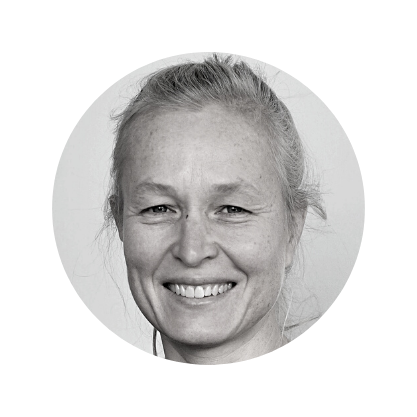
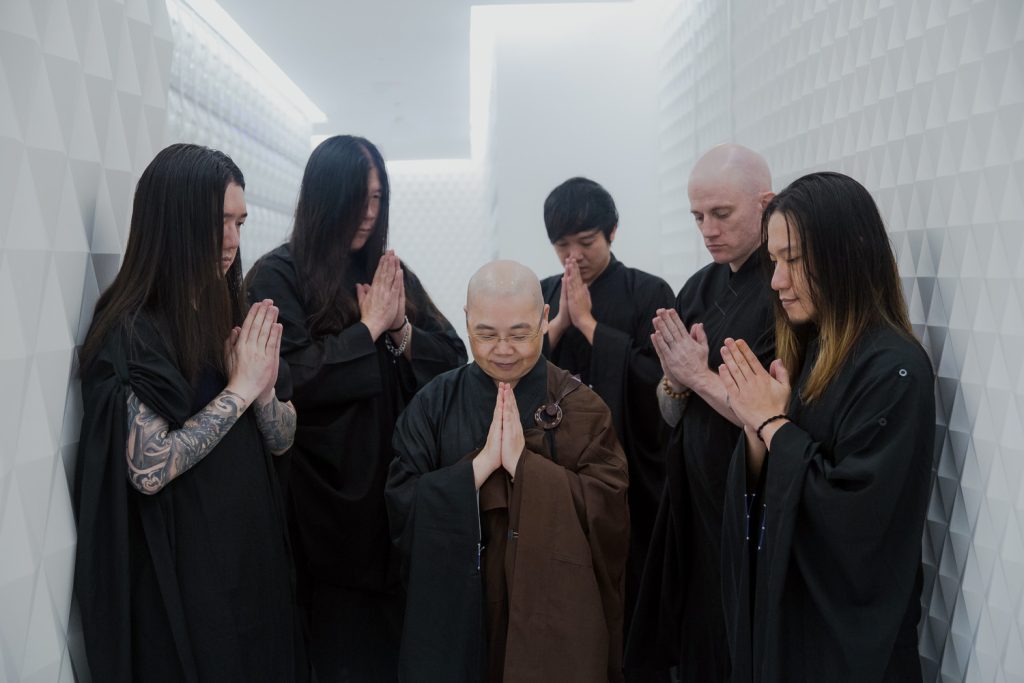
In the wellness-loving West and elsewhere, Buddhism is often associated with harmony and silence. But a group of musicians from Taiwan is shattering this image. Dharma from Taipei combines death metal, perhaps the most brutal form of rock music, with mantras and temple aesthetics. At their gigs, a real Buddhist nun takes center stage. The seven members of Dharma emphasize that this is not a gimmick to attract attention. Almost all of them are devout Buddhists.
“There are many ways to find peace,” says band founder Jack Tung, a hulking long-haired man with a childlike smile. The idea of combining the heaviest of heavy metal with Buddhist themes had been spinning around in his head for a good 20 years – until he finally found the right people to turn the project into reality in 2018. His only concern at the time was how the Buddhist dignitaries would react in Taiwan, where around 20 percent of the citizens practice Buddhism and where, as Tung explains, “there are more temples than 7-Eleven stores”.
In 2019, Tung made a pilgrimage from temple to temple to play his group’s first demo recordings to the masters, monks and nuns of Taiwan’s various Buddhist orders. He wanted to make sure he wasn’t committing sacrilege with a Buddhist update of the inherently blasphemous death metal music. “Even though they were over 80 and had never heard heavy metal before, the reaction of the masters was overwhelmingly positive,” Tung recalls. Buddhism in Taiwan is more open-minded than in Thailand, for example, where it is already considered disrespectful to have a Buddha tattooed on the arm.
In fact, Buddhism in Taiwan fulfills not only spiritual needs, but also social and even geopolitical functions. Taiwan is a secular country where the state and religion are strictly separated. But because most of the world does not recognize Taiwan as a state, Buddhism steps into the breach and forges diplomatic contacts worldwide. Taiwan’s two largest Buddhist groups, Tzu Chi and Fo Guang Shan, maintain temples, academies, publishing houses and other branches on all five continents.
Fo Guang Shan is currently building a new temple in Berlin, its glazed ceramic façade looking like a lost art museum in the otherwise unglamorous Gesundbrunnen city district. It was designed by the office of the French architect Fréderic Rolland, who also built the largest Buddhist temple in Europe near Paris.
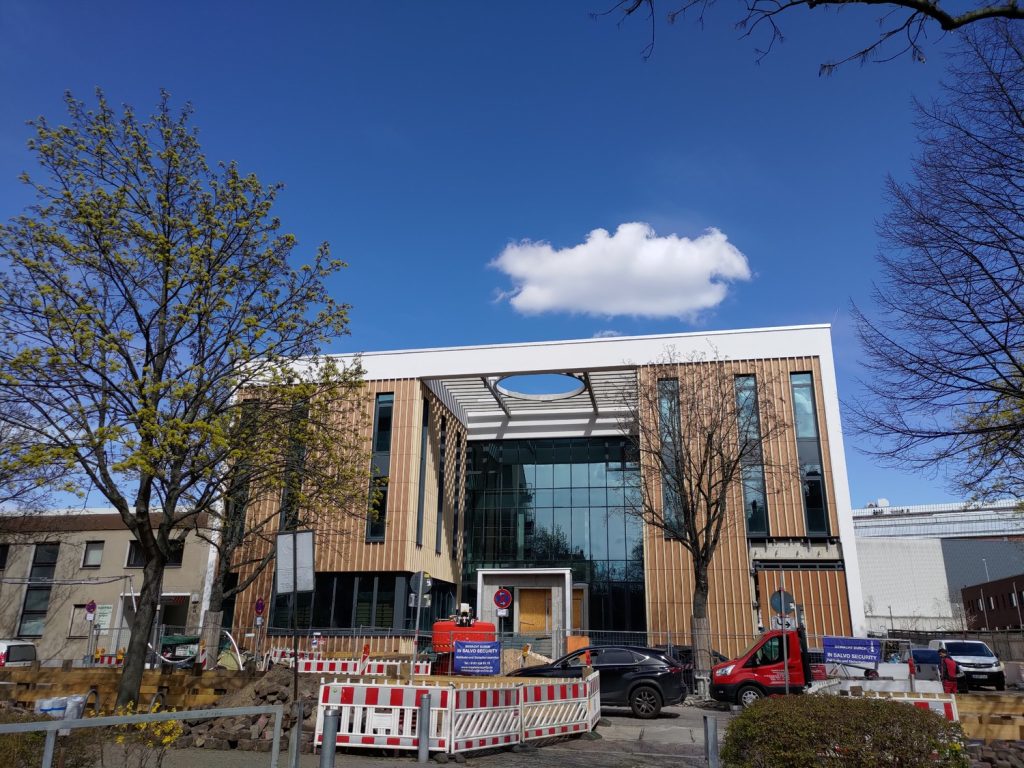
Fo Guang Shan, “Buddha’s Mountain of Light,” is a multi-million dollar globally operating organization active in 173 countries and even publishes its own newspaper – “only with good news,” as Miaoshiang Shih, the master of the Berlin temple, points out. In contrast to other schools, Taiwanese Buddhism is cosmopolitan and focused on humanism, explains the Buddhist nun with the shaved head. Besides religious practice, serving the common good, such as feeding the poor and organizing charity events, is the pillar of the community, she says.
Together with Tzu-Chi, Fo Guang Shan is one of Taiwan’s largest charities. Even in times of martial law, the organizations had taken on tasks that the state could not or would not fulfill, especially in the health sector. Tzu Chi alone runs six major hospitals in Taiwan. When an earthquake devastated large parts of central Taiwan in 1999, Tzu Chi’s often voluntary but tightly organized rescue teams were immediately on the scene while the government’s disaster management lagged.
At the same time, Taiwanese Buddhists are reaching far beyond the island’s borders. Since 1991, Tzu Chi has been providing international disaster relief. This includes providing food and clothing and rebuilding homes. And this even in Mainland China, which is otherwise highly suspicious of civil organized religious communities, for example, the Falun Gong movement, which has been banned and persecuted since 1999. Tzu Chi has been active in Europe with refugee aid and supplying Covid masks, among other things. Its German website lists the good deeds of the past years in chronological order.
In recognition of its global aid programs, Tzu Chi even received consultative status with the Economic and Social Council of the United Nations in 2003. The US religion sociologist Richard Madsen calls the principle “moral representation“: Diplomatically isolated and geopolitically largely powerless, Taiwan would be able to project a positive, committed image of itself to the world through organizations like Tzu Chi – which maintain significantly more foreign representations than the Taiwanese state.
And this representation now indirectly includes death metal with Buddhist lyrics. “I immediately wanted to join. It’s a brand new way of bringing Buddhism to younger people,” says Mao Ben, the nun of the Fo Guang Shan school who recites mantras during Dharma’s concerts. In Buddhism, the Sanskrit word Dharma stands for the teachings of the Buddha and the universal order.
The band is currently planning their first European tour, several weeks in a minibus across nine countries. Will that not be too much for her at the age of 52? The band members laugh: “The master has much more travel experience than we do.” As the singer of a Buddhist choir, she last toured Europe for two months before the pandemic. When it comes to cultural diplomacy, these metalheads can still learn a thing or two from the Buddhist nun.
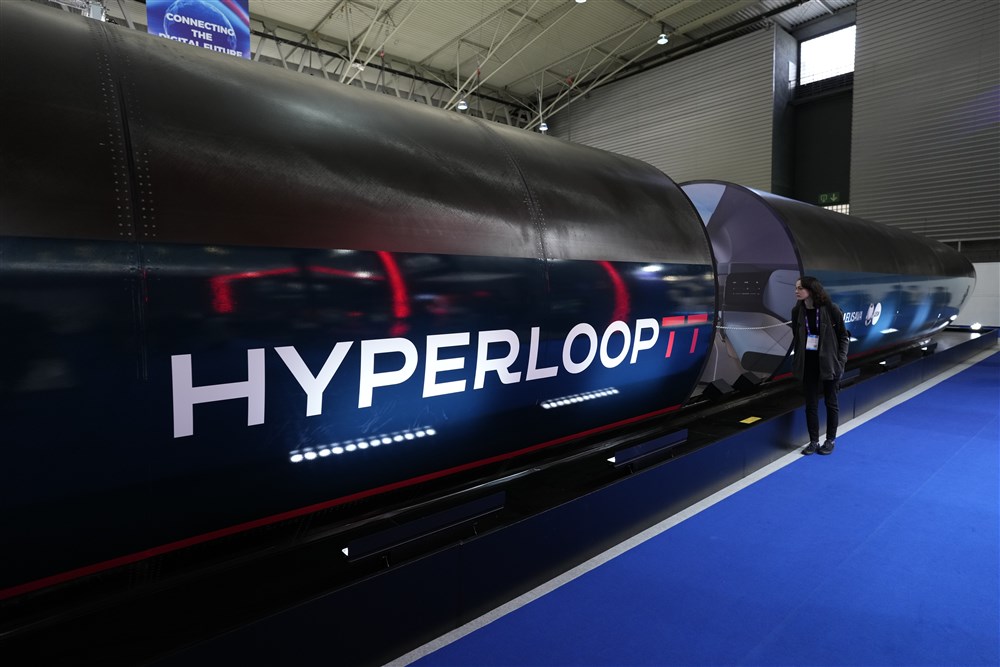
China is pushing ahead with plans for the country’s first commercial Hyperloop line. A high-speed train that speeds through a vacuum tube up to 1000 km/h could be operational in about twelve years. This is reported by the Hong Kong newspaper South China Morning Post, citing the Chinese Academy of Engineering and China Railway.
The first Hyperloop line is to be built between Shanghai and the neighboring city of Hangzhou. Previously, a joint committee had searched for the best site for a commercial line, whose evaluation report was published in the Chinese trade journal Railway Standard Design. The neighboring cities of Beijing-Shijiazhuang, Guangzhou-Shenzhen and Chengdu-Chongqing were also considered.
If everything goes according to plan, the 175-kilometer connection could start in 2035. Travel between Shanghai and Hangzhou would then be possible in 15 minutes instead of 45 minutes by conventional express train. Many years ago, the route was also considered for the extension of the Transrapid. The latter only runs from Pudong International Airport to the city’s outskirts; the extension failed, among other things, due to high costs and residents’ protests.
The Hyperloop project is now “of strategic importance to China,” the newspaper quotes engineer Zhang Yunjiao, who headed the search for a suitable site.
The People’s Republic has been intensively researching Hyperloop technology since 2017. In September 2019, the Central Committee of the Communist Party of China (CPC) and the State Council issued the “Outline for Building China’s Strength in Transport,” which explicitly proposes to meaningfully coordinate the research and development of high-speed magnetic levitation systems at 600 km/h and high-speed trains in low-vacuum pipes
With speeds of over 1,000 km/h, Hyperloop trains are expected to match planes and open up new forms of intercontinental transport. Some Chinese engineers are already dreaming of speeds of 4,000 km/h. Of course, even for 1,000 km/h, China still has a lot of work to do. This highly expensive technology is still a long way from becoming operational. “In the project’s planning, all parties involved must first go through the feasibility study, the detailed study, the preliminary design and other processes, not only to assess the maturity of the technology but also to consider various realistic aspects such as environmental protection and economic efficiency,” explains a professor of transport planning at Tongji University.
The idea of sending trains or passenger capsules through almost airless tubes at high speed is not new. As early as 1825, the London and Edinburgh Vacuum Tunnel Company was convinced that rail vehicles should travel through vacuum tunnels. It received a new boost ten years ago when US billionaire Elon Musk backed the technology. However, a test track built by Musk has since been dismantled. The announced construction of a Hyperloop between Los Angeles and San Francisco no longer seems to be very high on the entrepreneur’s long list of priorities.
In Europe, too, research is in full swing. In the Netherlands, the start-up Hardt Hyperloop launched its first test tube in 2019. In Spain, the start-up Zeleros, founded in 2016, is working on the Hyperloop. The program at the Technical University of Munich has also recently taken a step forward with the start of the construction of a new test track.
In January, a new train of the state-owned China Aerospace Science and Industry Corporation (CASIC) completed a successful test in Datong, Shanxi province. The train traveled at a speed of 50 km/h over a distance of about two kilometers. Critical components such as a superconducting magnet, electronics and AI safety controls worked as planned.
But to actually be able to operate a line, not only the trains have to be significantly improved. China would also have to make huge infrastructure investments. Workers would not only have to lay the tubes, but probably also build entirely new stations for a Hyperloop network. In order to truly make substantial progress, test tracks of at least 50 kilometers in length would have to be built, according to Chinese experts.
It is also debatable whether a Hyperloop is necessary between the neighboring cities, already connected by excellent and increasingly faster high-speed trains. For business travelers, a Hyperloop would certainly be attractive on longer routes as an even faster alternative to air travel. The route between Beijing and Shanghai could be traveled in just over an hour. From Beijing to Hong Kong it would perhaps take just over three hours. But that still seems a pipe dream, even for the Chinese planners. Collaboration: Fabian Peltsch
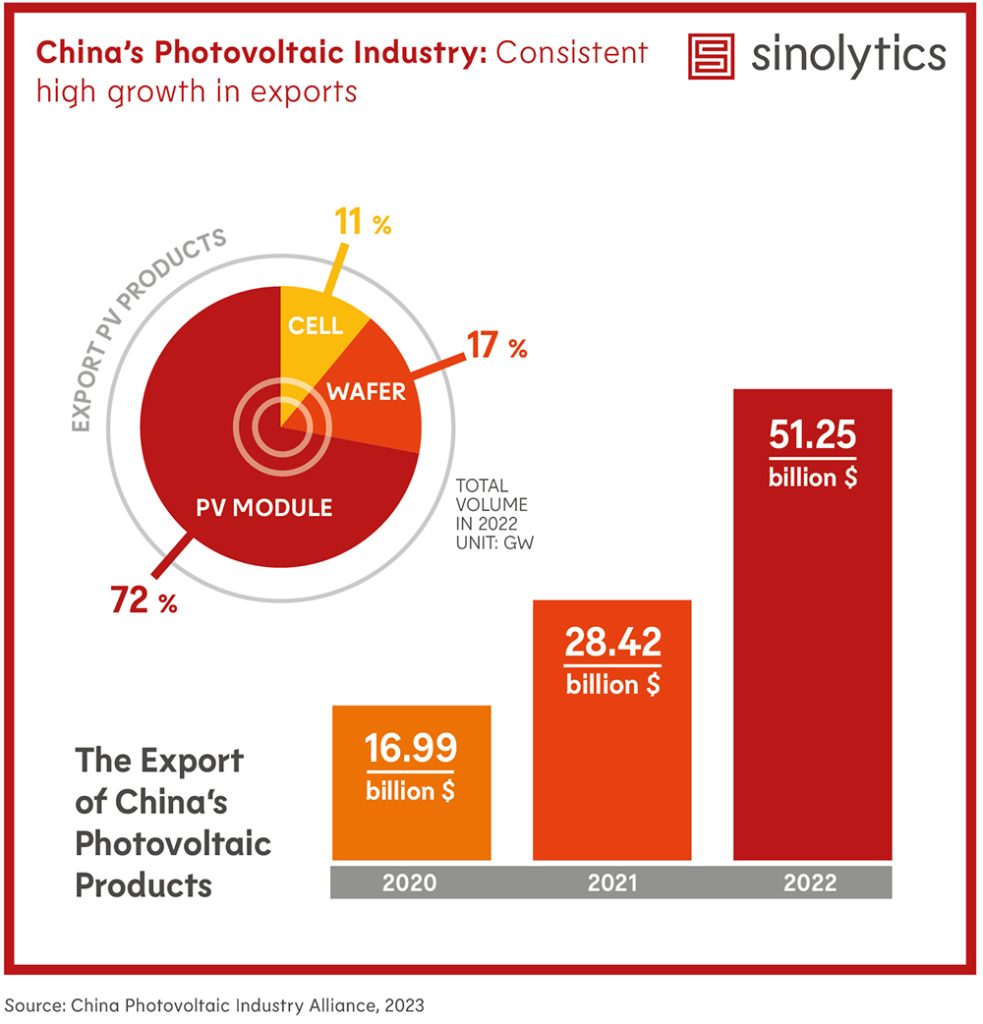
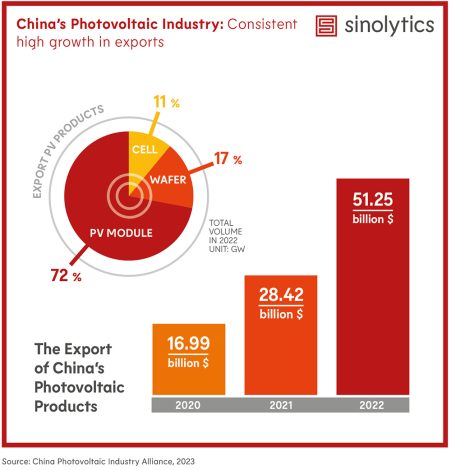
Sinolytics is a European research-based consultancy entirely focused on China. It advises European companies on their strategic orientation and concrete business activities in the People’s Republic.
China is increasingly preventing people from leaving the country, including foreign executives. According to a new report by the human rights organization Safeguard Defenders, dozens of Chinese and foreigners have been affected by exit bans. In addition, a Reuters analysis of records of exit bans from China’s Supreme Court database shows an eight-fold increase in such cases between 2016 and 2022. Most in the database are civil, not criminal, cases. Europe and the US generally only prevent people from leaving on the grounds of criminal investigations.
“Since Xi Jinping took power in 2012, China has expanded the legal landscape for exit bans and increasingly used them, sometimes outside legal justification,” Safeguard Defenders’ report says. “Between 2018 and July of this year, no less than five new or amended (Chinese) laws provide for the use of exit bans, for a total today of 15 laws,” said Laura Harth, the group’s campaign director.
According to three people familiar with the matter, a Singaporean manager at the US due diligence firm Mintz Group was prevented from leaving the country this year. The company’s Chinese branch was raided at the end of March, and several arrests were made. The Ministry of Foreign Affairs said at the time that Mintz was suspected of conducting unlawful business.
Last week, China also tightened its anti-espionage law allowing exit bans to be imposed on anyone who “causes significant harm to national security or interests.” Foreign companies expressed concern about the vague wording of the law. “There is a lot of uncertainty,” said Joerg Wuttke, head of the European Union Chamber of Commerce in China. “Is it possible to conduct a due diligence audit? There needs to be clarity.” rtr/ck
France suspended a bilateral air services agreement with China to offset unfair competitive conditions created by the Ukraine war. This was reported by the airline industry portal Aerotelegraph on Tuesday. According to Bloomberg, Air France previously urged the French government to restrict Chinese airlines’ access to France.
The problem: Due to the Western overflight bans for Russian airlines, Moscow has conversely withdrawn the overflight rights for Western airlines over its territory. However, this overflight ban does not apply to Chinese airlines. As a result, they enjoy a much shorter and, thus, faster flight route between China and Europe than their European competitors, who have to fly long detours. As a result, flights back from China by airlines such as Air France take up to three hours longer than those by Chinese airlines, according to the report – which results in additional fuel and staff costs.
The bilateral flight agreement now suspended by the French government allowed Chinese and French airlines to fly to the same number of destinations in France and China, respectively. However, the document signed in 2017 already contained a suspension clause in case Russia’s airspace was closed. According to Bloomberg, taxes or other measures to equalize costs between Air France and Chinese airlines are now being discussed as a solution to the problem. fpe
China has reformed its conscription law to make it easier to recruit former soldiers as well as technically proficient experts. Monday’s reform makes it easier for retired soldiers to return to their old units or perform previous duties, the Japanese magazine Nikkei Asia reports. The aim is to secure experienced personnel for the military, it said. Another provision makes it easier to draft people in an emergency.
Another key focus of the law change is on students, according to the report. The law allows universities to recruit them on campus for the military. At its core, it is about recruiting technically skilled science and engineering students – with an eye on warfare in cyberspace or outer space. “We will build a military draft system that can respond, from peacetime to emergencies, swiftly and seamlessly,” Nikkei Asia quoted Tan Kefei, a spokesman for China’s Ministry of Defense, as saying.
The number of conscripts is declining due to China’s aging population. The military’s focus on recruiting retired military personnel and college students is said to be a sign of a shortage of active soldiers, Masafumi Iida, an expert on China’s maritime strategy at Japan’s National Institute for Defence Studies, told the newspaper. China has repeatedly revised its conscription system to strengthen the military. In 2021, for example, the age limit for new recruits was raised from 22 to 24 for university graduates and 26 for post-graduates. ck
The People’s Republic has for the first time voted in favor of a UN resolution recognizing the “aggression of the Russian Federation against Ukraine”. The UN General Assembly advocates closer cooperation with the Strasbourg-based Council of Europe in the paper. So Russia was only a fringe topic. The Strasbourg-based Council of Europe is not an EU institution. It has 47 member states and focuses on the upholding of human rights. Due to the invasion, Russia is currently not represented there.
Beijing had abstained from resolutions involving Russia since the beginning of the war. However, the resolution also received support from other states, such as India and Kazakhstan, which have otherwise abstained from Russia-related votes. The paper was voted on last week at the UN General Assembly. ari
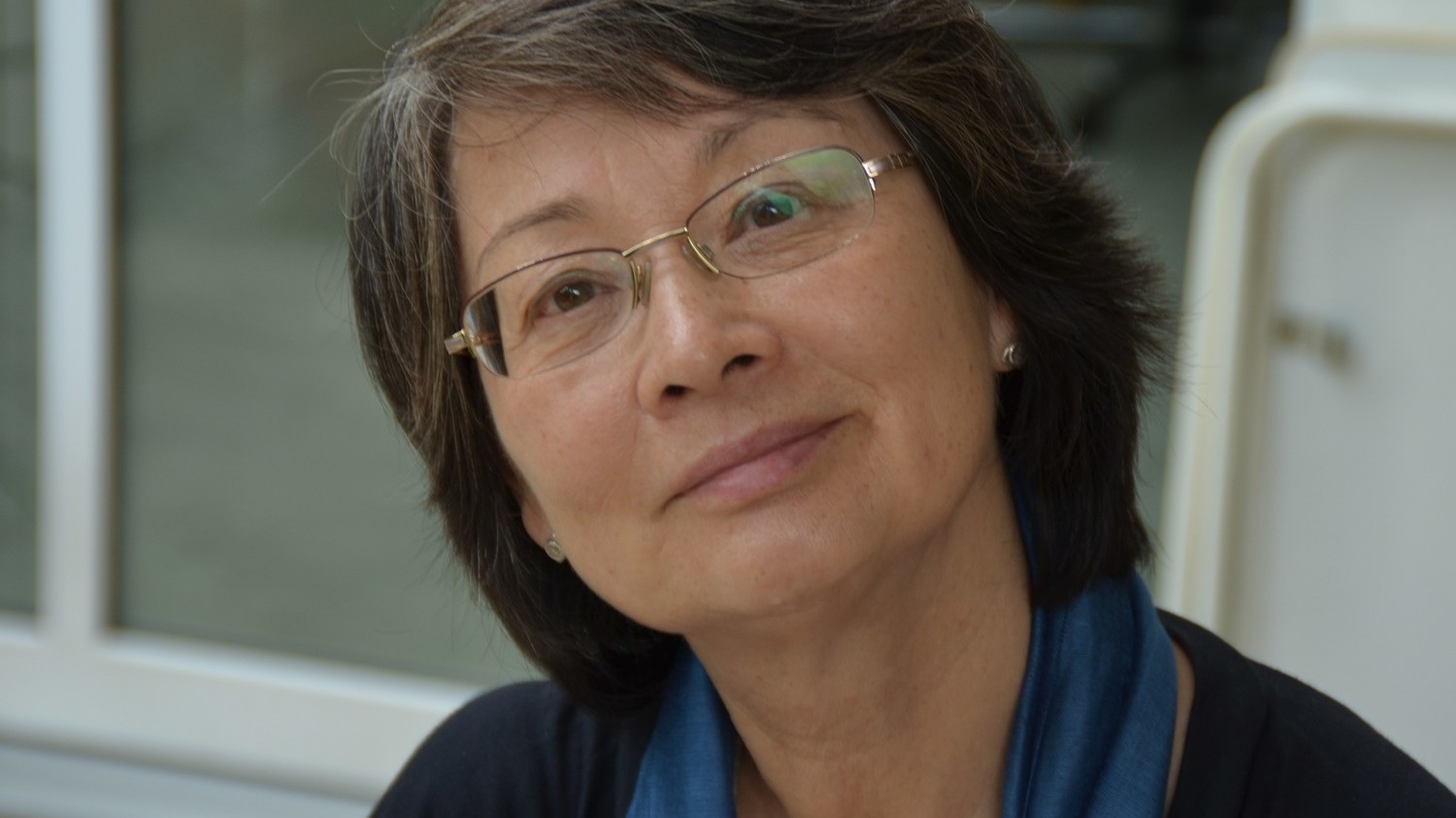
“For many people, the translator is a machine that eats the source language at one end and spits out the target language at the other,” says Nelly Ma. “If only it were that simple.”
She should know. After many years as a lecturer of Chinese at the University of Passau, Ma now works as a translator of Chinese texts. The greatest challenge for her lies in the fundamental difference between the two languages: “This foreignness manifests itself on two levels – the linguistic and the cultural,” says Ma. The greater the difference, the more exciting the work of translation – which not only involves the text, but also the literary style, the atmosphere, the voice and the soul of the original. The fact that translators also bring their own voice to the work is unavoidable, even desirable: “But you have to know your limits.
The fact that Nelly Ma found her passion in literature and language and is still able to pursue it today is not a matter of course: Her Chinese father met her German mother during his time at university. In 1946, the family moved to China; Ma grew up in Beijing and eventually studied Romance languages at the university there. But the ordinary studies were short-lived: “After the first year of study, the Cultural Revolution broke out in China,” Ma recounts. “For two years, the students stayed at the university and made revolution.” Together with her fellow students, she was eventually sent to a military farm for “re-education.” “My life during that time was rice farming and class struggle.”
After the military farm, it was impossible to choose one’s own profession and job. Depending on the family background, both were assigned. Those who came from the working class and farmers or were the child of a party official got a job in the big city, in ministries, or in the army. “I was assigned a job in a small town in northern China because of my foreign mother,” Ma says. She lived there for five years and worked in a small factory manufacturing agricultural equipment.
“In the Cultural Revolution, I was confronted with bloody terror for the first time, with a lot of suffering and agony,” Ma says. “The first doubts about the world I was living in began to bud.” Ma was eventually able to return to Beijing and work as a translator for the first time, but a desire to turn her back on China matured. “At the end of 1978, a small gap opened in the Iron Curtain, and I was able to travel to Germany with my parents for a short time.” She received a scholarship and took the opportunity: “I escaped a cage and saw that life can be lived quite differently.”
That was more than 40 years ago. 40 years in which Ma has been living her personal freedom in Germany, as a university lecturer, with her translations and as co-author of several guidebooks. “Forty years of watching from afar how China is rapidly changing. And this transformation evokes concern and anger in me.” Ma has since retired, but still writes and translates. And one big project is set to be published this fall: her autobiography – in which she will, of course, also look back at her eventful life in China. Svenja Napp
Stéphanie Labussière will be Vice President Product Management at Porsche China from May. The French product manager was most recently Vice President Product Marketing at the FAW-Volkswagen joint venture. She will be based in Shanghai.
Alexander Buehringer took over project management for the production of the PPE41 China project at Audi in April. PPE stands for Premium Platform Electric (PPE), a modular platform system developed by Audi and Porsche for the “premium” EV segment. Buehringer continues to work from Munich.
Jack Ma joined Tokyo College as a visiting professor on May 1. The founder of Alibaba will conduct seminars there on entrepreneurship, as well as research projects in the field of sustainable agriculture and food production.
Is something changing in your organization? Let us know at heads@table.media!

After two years of the pandemic, the Chinese are again spending the five-day May vacations this year on short trips – despite traffic jams, high ticket prices, and crowds. Shanghai reported seven million visitors over the weekend alone. The travel booking website Trip.com recorded a 700 percent increase in domestic bookings compared to 2021. Here, vacationers collide while rafting near Wuzhishan on the tropical island of Hainan.
Taiwan is largely isolated diplomatically. Hardly any country recognizes the democratically governed island as a state, and so Taipei maintains embassies or missions in only a handful of countries. However, two large Buddhist organizations, Tzu-Chi and Fo Guang Shan, have representations in many countries worldwide.
Both belong to the largest welfare institutions in Taiwan and give Taipei an international voice, as Fabian Peltsch writes. Those who want to visit Fo Guang Shan in Germany will even find a new temple of the organization in Berlin Gesundbrunnen. Meanwhile, the Buddhist metal band Dharma is planning its first European tour. Taiwanese Buddhism has always been a little more open.
Also open is the race of which country will be the first to bring a commercial Hyperloop line to the home stretch. China has now announced plans to develop a line between Shanghai and Hangzhou for the speedy tube trains. The first passengers could whiz through a vacuum tube as early as 2035, writes Joern Petring. Instead of the planned 1,000 km/h, however, the first test trains only reached a modest 50 km/h in winter. Crucial components, however, functioned. Whether Beijing will really bear the horrendous costs of building a hyperloop infrastructure is questionable.


In the wellness-loving West and elsewhere, Buddhism is often associated with harmony and silence. But a group of musicians from Taiwan is shattering this image. Dharma from Taipei combines death metal, perhaps the most brutal form of rock music, with mantras and temple aesthetics. At their gigs, a real Buddhist nun takes center stage. The seven members of Dharma emphasize that this is not a gimmick to attract attention. Almost all of them are devout Buddhists.
“There are many ways to find peace,” says band founder Jack Tung, a hulking long-haired man with a childlike smile. The idea of combining the heaviest of heavy metal with Buddhist themes had been spinning around in his head for a good 20 years – until he finally found the right people to turn the project into reality in 2018. His only concern at the time was how the Buddhist dignitaries would react in Taiwan, where around 20 percent of the citizens practice Buddhism and where, as Tung explains, “there are more temples than 7-Eleven stores”.
In 2019, Tung made a pilgrimage from temple to temple to play his group’s first demo recordings to the masters, monks and nuns of Taiwan’s various Buddhist orders. He wanted to make sure he wasn’t committing sacrilege with a Buddhist update of the inherently blasphemous death metal music. “Even though they were over 80 and had never heard heavy metal before, the reaction of the masters was overwhelmingly positive,” Tung recalls. Buddhism in Taiwan is more open-minded than in Thailand, for example, where it is already considered disrespectful to have a Buddha tattooed on the arm.
In fact, Buddhism in Taiwan fulfills not only spiritual needs, but also social and even geopolitical functions. Taiwan is a secular country where the state and religion are strictly separated. But because most of the world does not recognize Taiwan as a state, Buddhism steps into the breach and forges diplomatic contacts worldwide. Taiwan’s two largest Buddhist groups, Tzu Chi and Fo Guang Shan, maintain temples, academies, publishing houses and other branches on all five continents.
Fo Guang Shan is currently building a new temple in Berlin, its glazed ceramic façade looking like a lost art museum in the otherwise unglamorous Gesundbrunnen city district. It was designed by the office of the French architect Fréderic Rolland, who also built the largest Buddhist temple in Europe near Paris.

Fo Guang Shan, “Buddha’s Mountain of Light,” is a multi-million dollar globally operating organization active in 173 countries and even publishes its own newspaper – “only with good news,” as Miaoshiang Shih, the master of the Berlin temple, points out. In contrast to other schools, Taiwanese Buddhism is cosmopolitan and focused on humanism, explains the Buddhist nun with the shaved head. Besides religious practice, serving the common good, such as feeding the poor and organizing charity events, is the pillar of the community, she says.
Together with Tzu-Chi, Fo Guang Shan is one of Taiwan’s largest charities. Even in times of martial law, the organizations had taken on tasks that the state could not or would not fulfill, especially in the health sector. Tzu Chi alone runs six major hospitals in Taiwan. When an earthquake devastated large parts of central Taiwan in 1999, Tzu Chi’s often voluntary but tightly organized rescue teams were immediately on the scene while the government’s disaster management lagged.
At the same time, Taiwanese Buddhists are reaching far beyond the island’s borders. Since 1991, Tzu Chi has been providing international disaster relief. This includes providing food and clothing and rebuilding homes. And this even in Mainland China, which is otherwise highly suspicious of civil organized religious communities, for example, the Falun Gong movement, which has been banned and persecuted since 1999. Tzu Chi has been active in Europe with refugee aid and supplying Covid masks, among other things. Its German website lists the good deeds of the past years in chronological order.
In recognition of its global aid programs, Tzu Chi even received consultative status with the Economic and Social Council of the United Nations in 2003. The US religion sociologist Richard Madsen calls the principle “moral representation“: Diplomatically isolated and geopolitically largely powerless, Taiwan would be able to project a positive, committed image of itself to the world through organizations like Tzu Chi – which maintain significantly more foreign representations than the Taiwanese state.
And this representation now indirectly includes death metal with Buddhist lyrics. “I immediately wanted to join. It’s a brand new way of bringing Buddhism to younger people,” says Mao Ben, the nun of the Fo Guang Shan school who recites mantras during Dharma’s concerts. In Buddhism, the Sanskrit word Dharma stands for the teachings of the Buddha and the universal order.
The band is currently planning their first European tour, several weeks in a minibus across nine countries. Will that not be too much for her at the age of 52? The band members laugh: “The master has much more travel experience than we do.” As the singer of a Buddhist choir, she last toured Europe for two months before the pandemic. When it comes to cultural diplomacy, these metalheads can still learn a thing or two from the Buddhist nun.

China is pushing ahead with plans for the country’s first commercial Hyperloop line. A high-speed train that speeds through a vacuum tube up to 1000 km/h could be operational in about twelve years. This is reported by the Hong Kong newspaper South China Morning Post, citing the Chinese Academy of Engineering and China Railway.
The first Hyperloop line is to be built between Shanghai and the neighboring city of Hangzhou. Previously, a joint committee had searched for the best site for a commercial line, whose evaluation report was published in the Chinese trade journal Railway Standard Design. The neighboring cities of Beijing-Shijiazhuang, Guangzhou-Shenzhen and Chengdu-Chongqing were also considered.
If everything goes according to plan, the 175-kilometer connection could start in 2035. Travel between Shanghai and Hangzhou would then be possible in 15 minutes instead of 45 minutes by conventional express train. Many years ago, the route was also considered for the extension of the Transrapid. The latter only runs from Pudong International Airport to the city’s outskirts; the extension failed, among other things, due to high costs and residents’ protests.
The Hyperloop project is now “of strategic importance to China,” the newspaper quotes engineer Zhang Yunjiao, who headed the search for a suitable site.
The People’s Republic has been intensively researching Hyperloop technology since 2017. In September 2019, the Central Committee of the Communist Party of China (CPC) and the State Council issued the “Outline for Building China’s Strength in Transport,” which explicitly proposes to meaningfully coordinate the research and development of high-speed magnetic levitation systems at 600 km/h and high-speed trains in low-vacuum pipes
With speeds of over 1,000 km/h, Hyperloop trains are expected to match planes and open up new forms of intercontinental transport. Some Chinese engineers are already dreaming of speeds of 4,000 km/h. Of course, even for 1,000 km/h, China still has a lot of work to do. This highly expensive technology is still a long way from becoming operational. “In the project’s planning, all parties involved must first go through the feasibility study, the detailed study, the preliminary design and other processes, not only to assess the maturity of the technology but also to consider various realistic aspects such as environmental protection and economic efficiency,” explains a professor of transport planning at Tongji University.
The idea of sending trains or passenger capsules through almost airless tubes at high speed is not new. As early as 1825, the London and Edinburgh Vacuum Tunnel Company was convinced that rail vehicles should travel through vacuum tunnels. It received a new boost ten years ago when US billionaire Elon Musk backed the technology. However, a test track built by Musk has since been dismantled. The announced construction of a Hyperloop between Los Angeles and San Francisco no longer seems to be very high on the entrepreneur’s long list of priorities.
In Europe, too, research is in full swing. In the Netherlands, the start-up Hardt Hyperloop launched its first test tube in 2019. In Spain, the start-up Zeleros, founded in 2016, is working on the Hyperloop. The program at the Technical University of Munich has also recently taken a step forward with the start of the construction of a new test track.
In January, a new train of the state-owned China Aerospace Science and Industry Corporation (CASIC) completed a successful test in Datong, Shanxi province. The train traveled at a speed of 50 km/h over a distance of about two kilometers. Critical components such as a superconducting magnet, electronics and AI safety controls worked as planned.
But to actually be able to operate a line, not only the trains have to be significantly improved. China would also have to make huge infrastructure investments. Workers would not only have to lay the tubes, but probably also build entirely new stations for a Hyperloop network. In order to truly make substantial progress, test tracks of at least 50 kilometers in length would have to be built, according to Chinese experts.
It is also debatable whether a Hyperloop is necessary between the neighboring cities, already connected by excellent and increasingly faster high-speed trains. For business travelers, a Hyperloop would certainly be attractive on longer routes as an even faster alternative to air travel. The route between Beijing and Shanghai could be traveled in just over an hour. From Beijing to Hong Kong it would perhaps take just over three hours. But that still seems a pipe dream, even for the Chinese planners. Collaboration: Fabian Peltsch


Sinolytics is a European research-based consultancy entirely focused on China. It advises European companies on their strategic orientation and concrete business activities in the People’s Republic.
China is increasingly preventing people from leaving the country, including foreign executives. According to a new report by the human rights organization Safeguard Defenders, dozens of Chinese and foreigners have been affected by exit bans. In addition, a Reuters analysis of records of exit bans from China’s Supreme Court database shows an eight-fold increase in such cases between 2016 and 2022. Most in the database are civil, not criminal, cases. Europe and the US generally only prevent people from leaving on the grounds of criminal investigations.
“Since Xi Jinping took power in 2012, China has expanded the legal landscape for exit bans and increasingly used them, sometimes outside legal justification,” Safeguard Defenders’ report says. “Between 2018 and July of this year, no less than five new or amended (Chinese) laws provide for the use of exit bans, for a total today of 15 laws,” said Laura Harth, the group’s campaign director.
According to three people familiar with the matter, a Singaporean manager at the US due diligence firm Mintz Group was prevented from leaving the country this year. The company’s Chinese branch was raided at the end of March, and several arrests were made. The Ministry of Foreign Affairs said at the time that Mintz was suspected of conducting unlawful business.
Last week, China also tightened its anti-espionage law allowing exit bans to be imposed on anyone who “causes significant harm to national security or interests.” Foreign companies expressed concern about the vague wording of the law. “There is a lot of uncertainty,” said Joerg Wuttke, head of the European Union Chamber of Commerce in China. “Is it possible to conduct a due diligence audit? There needs to be clarity.” rtr/ck
France suspended a bilateral air services agreement with China to offset unfair competitive conditions created by the Ukraine war. This was reported by the airline industry portal Aerotelegraph on Tuesday. According to Bloomberg, Air France previously urged the French government to restrict Chinese airlines’ access to France.
The problem: Due to the Western overflight bans for Russian airlines, Moscow has conversely withdrawn the overflight rights for Western airlines over its territory. However, this overflight ban does not apply to Chinese airlines. As a result, they enjoy a much shorter and, thus, faster flight route between China and Europe than their European competitors, who have to fly long detours. As a result, flights back from China by airlines such as Air France take up to three hours longer than those by Chinese airlines, according to the report – which results in additional fuel and staff costs.
The bilateral flight agreement now suspended by the French government allowed Chinese and French airlines to fly to the same number of destinations in France and China, respectively. However, the document signed in 2017 already contained a suspension clause in case Russia’s airspace was closed. According to Bloomberg, taxes or other measures to equalize costs between Air France and Chinese airlines are now being discussed as a solution to the problem. fpe
China has reformed its conscription law to make it easier to recruit former soldiers as well as technically proficient experts. Monday’s reform makes it easier for retired soldiers to return to their old units or perform previous duties, the Japanese magazine Nikkei Asia reports. The aim is to secure experienced personnel for the military, it said. Another provision makes it easier to draft people in an emergency.
Another key focus of the law change is on students, according to the report. The law allows universities to recruit them on campus for the military. At its core, it is about recruiting technically skilled science and engineering students – with an eye on warfare in cyberspace or outer space. “We will build a military draft system that can respond, from peacetime to emergencies, swiftly and seamlessly,” Nikkei Asia quoted Tan Kefei, a spokesman for China’s Ministry of Defense, as saying.
The number of conscripts is declining due to China’s aging population. The military’s focus on recruiting retired military personnel and college students is said to be a sign of a shortage of active soldiers, Masafumi Iida, an expert on China’s maritime strategy at Japan’s National Institute for Defence Studies, told the newspaper. China has repeatedly revised its conscription system to strengthen the military. In 2021, for example, the age limit for new recruits was raised from 22 to 24 for university graduates and 26 for post-graduates. ck
The People’s Republic has for the first time voted in favor of a UN resolution recognizing the “aggression of the Russian Federation against Ukraine”. The UN General Assembly advocates closer cooperation with the Strasbourg-based Council of Europe in the paper. So Russia was only a fringe topic. The Strasbourg-based Council of Europe is not an EU institution. It has 47 member states and focuses on the upholding of human rights. Due to the invasion, Russia is currently not represented there.
Beijing had abstained from resolutions involving Russia since the beginning of the war. However, the resolution also received support from other states, such as India and Kazakhstan, which have otherwise abstained from Russia-related votes. The paper was voted on last week at the UN General Assembly. ari

“For many people, the translator is a machine that eats the source language at one end and spits out the target language at the other,” says Nelly Ma. “If only it were that simple.”
She should know. After many years as a lecturer of Chinese at the University of Passau, Ma now works as a translator of Chinese texts. The greatest challenge for her lies in the fundamental difference between the two languages: “This foreignness manifests itself on two levels – the linguistic and the cultural,” says Ma. The greater the difference, the more exciting the work of translation – which not only involves the text, but also the literary style, the atmosphere, the voice and the soul of the original. The fact that translators also bring their own voice to the work is unavoidable, even desirable: “But you have to know your limits.
The fact that Nelly Ma found her passion in literature and language and is still able to pursue it today is not a matter of course: Her Chinese father met her German mother during his time at university. In 1946, the family moved to China; Ma grew up in Beijing and eventually studied Romance languages at the university there. But the ordinary studies were short-lived: “After the first year of study, the Cultural Revolution broke out in China,” Ma recounts. “For two years, the students stayed at the university and made revolution.” Together with her fellow students, she was eventually sent to a military farm for “re-education.” “My life during that time was rice farming and class struggle.”
After the military farm, it was impossible to choose one’s own profession and job. Depending on the family background, both were assigned. Those who came from the working class and farmers or were the child of a party official got a job in the big city, in ministries, or in the army. “I was assigned a job in a small town in northern China because of my foreign mother,” Ma says. She lived there for five years and worked in a small factory manufacturing agricultural equipment.
“In the Cultural Revolution, I was confronted with bloody terror for the first time, with a lot of suffering and agony,” Ma says. “The first doubts about the world I was living in began to bud.” Ma was eventually able to return to Beijing and work as a translator for the first time, but a desire to turn her back on China matured. “At the end of 1978, a small gap opened in the Iron Curtain, and I was able to travel to Germany with my parents for a short time.” She received a scholarship and took the opportunity: “I escaped a cage and saw that life can be lived quite differently.”
That was more than 40 years ago. 40 years in which Ma has been living her personal freedom in Germany, as a university lecturer, with her translations and as co-author of several guidebooks. “Forty years of watching from afar how China is rapidly changing. And this transformation evokes concern and anger in me.” Ma has since retired, but still writes and translates. And one big project is set to be published this fall: her autobiography – in which she will, of course, also look back at her eventful life in China. Svenja Napp
Stéphanie Labussière will be Vice President Product Management at Porsche China from May. The French product manager was most recently Vice President Product Marketing at the FAW-Volkswagen joint venture. She will be based in Shanghai.
Alexander Buehringer took over project management for the production of the PPE41 China project at Audi in April. PPE stands for Premium Platform Electric (PPE), a modular platform system developed by Audi and Porsche for the “premium” EV segment. Buehringer continues to work from Munich.
Jack Ma joined Tokyo College as a visiting professor on May 1. The founder of Alibaba will conduct seminars there on entrepreneurship, as well as research projects in the field of sustainable agriculture and food production.
Is something changing in your organization? Let us know at heads@table.media!

After two years of the pandemic, the Chinese are again spending the five-day May vacations this year on short trips – despite traffic jams, high ticket prices, and crowds. Shanghai reported seven million visitors over the weekend alone. The travel booking website Trip.com recorded a 700 percent increase in domestic bookings compared to 2021. Here, vacationers collide while rafting near Wuzhishan on the tropical island of Hainan.
